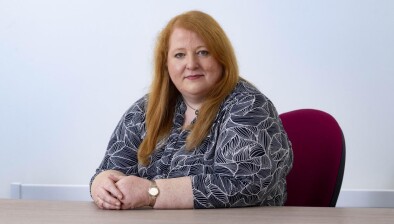NI Court of Appeal: Same-sex couple fail in bid to have both registered on child’s birth certificate

Northern Ireland’s Court of Appeal has rejected a declaration of parentage for a same-sex couple’s child conceived through private artificial insemination, citing public policy grounds. The judges did not consider that this affected the upbringing of the child.
A woman known as A appealed a decision refusing her application for a declaration of parentage of a child, R, pursuant to Article 31B of the Matrimonial and Family Proceedings (Northern Ireland) Order 1989.
The appellant, supported by her partner and the child’s mother, known as J, contended that the failure to provide a mechanism for her to be registered as the parent of R constituted a breach of her right to family life under Articles 8 and 14 ECHR and constituted a breach of both the private and family life of the child.
Background
In 2014, A and J, a same-sex couple, carried out searches enquiring about sperm donation on the internet. They met a man known as O who agreed to donate his sperm, which led to the birth of R. J was registered as R’s mother.
It was agreed between all parties that R would be co-parented by A and J, and the terms of this. There was, however, a dispute about the extent of any contact that O should have with the child. In September 2015, A and J entered a civil partnership and two further children have been born to J. A is registered on each birth certificate as the other parent.
A petitioned for a declaration of parentage pursuant to Article 31B of the 1989 Order, was sought and refused. A notice of incompatibility was served contending that sections 42 and 43 of the Human Fertilisation and Embryology Act 2008, and Article 31B, were incompatible with Article 8 and 14 Convention rights of the appellant, as they did not provide for the making of such a declaration.
The 2008 Act
The court was aware that the 2008 Act was preceded by considerable debate, such as the reports of the July 1982 Warnock committee, which had included a varied section of society. This led to the passing of the Human Fertilisation and Embryo Act 1990, in which the sperm donor did not acquire any parental rights if the donation was acquired from a licensed operator.
Sections 42 to 45 of the 2008 Act deal specifically with who is to be treated in law as the parent of a child born to a woman in a same-sex relationship. In this case, if the mother was a party to a civil partnership with another woman at the time of the artificial insemination, the other party to the civil partnership was to be treated as a parent of the child unless it was shown that she did not consent to the artificial insemination. However, as was the case with A, no such provision was available to those who had used a private donor, and were not in a civil partnership at the time of birth.
By virtue of section 45, where the other woman was treated as the parent of a child by virtue of section 42 or 43 no man could be treated as the father of the child. Where, therefore, these provisions were satisfied the biological father was excluded from acquiring rights as the father of the child.
Determination
The trial judge accepted that the appellant’s family life was affected by an inability to be registered as R’s parent. The court agreed, finding that the exclusion of the appellant’s name on the birth certificate of R affects the family life of A and J.
In substance, the court found that the appellant’s case revolved on the proposition that where there is an enduring relationship, and artificial insemination by donation, there is a positive obligation to ensure that the other party can be registered on the birth certificate with the exclusion of any rights of the donor.
However, on a ‘fair balance test’ the statutory scheme was not found to be incompatible with the appellant’s Article 8 rights. In relation to the claim for incompatibility based upon Article 14 of the Convention, the court considered whether the claimant was the victim of differential treatment when compared with others in analogous situation.
The appellant alleged that the comparator was “a person who is married or in a civil partnership where registration as a parent can take place regardless of whether the child was conceived through artificial insemination in a licensed clinic or elsewhere”.
The court accepted this was a difference of treatment based upon marital status, and a difference of treatment based upon the birth status of R.
However, with regards to justification, the court noted that “the inability to register on the birth certificate is a source of frustration and disappointment to the appellant but that does not justify setting aside this carefully constructed statutory scheme”.
On balance, the court did not consider that the absence of the name on the birth certificate caused an interference with R’s family life. It did constitute an interference with the private life of R in terms of his identity. That interference has a direct effect in terms of inheritance, but does not have an effect on fundamental matters, such as citizenship.
In their view, the facts did not justify any departure from the public policy approach established by the 2008 Act, as declarations on a case-by-case basis would introduce the uncertainty and confusion which the statutory scheme sought to avoid.
Conclusion
In agreement with the learned trial judge, the court did not consider that sections 42 and 43 of the Human Fertilisation and Embryology Act 2008 or Article 31B of the Matrimonial and Family Proceedings (Northern Ireland) Order 1989 were incompatible with the appellant’s Article 8 or 14 Convention rights.
It was correct not to make a declaration of parentage in this case, and the appeal was, therefore, dismissed.











